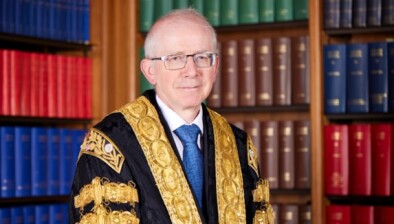UK: Wife seeks justice for ‘innocent’ Kenyan man convicted with British assistance of killing her husband

A woman whose husband was killed in Kenya has called for the role of the UK government in the “unfair” prosecution and trial of the “innocent” man convicted of killing him to be investigated.
Judith Tebbutt, a British tourist kidnapped in Kenya in 2011 with her husband David, who was killed, has called for the man accused in her ordeal to be given a fair appeal hearing.
Ali Babitu Kololo – a 39-year-old father of two from a village in Lamu, Kenya – was sentenced to death by a Kenyan court in 2013. Although Mr Kololo’s death sentence was commuted to life without parole after three years on death row, he remains in prison in Kenya.
In an interview with the BBC on Monday, Ms Tebbutt said that she wanted to make sure Mr Kololo was given the fair hearing he has so far been denied.
“I think a wrong should be righted,” said Mrs Tebbutt. “And when I say wrong I mean the fact that Mr Kololo didn’t have a fair trial…I think they have to take ownership of what they did back in 2011 – the team that helped to convict Mr Kololo - an innocent man.”
Upon arrest, Mr Kololo has consistently claimed he was beaten, threatened, and had his genitals twisted until he signed a ‘confession’ he didn’t understand and couldn’t read.
At trial Mr Kololo - who is indigent and illiterate, does not speak English and had only a limited grasp of Swahili (the two languages in which the trial was conducted) – was denied an interpreter. He did not have a lawyer throughout the prosecution case and had to cross-examine all 20 prosecution witnesses himself.
The Metropolitan Police, along with the Foreign Office and Home Office, provided support to the public prosecution in Mr Kololo’s case, raising concerns that they may have helped secure his death sentence, in contravention of UK policy and undermining the UK’s longstanding opposition to the death penalty.
Under the Overseas Justice and Security Assistance (OSJA), the UK will seek assurances that the death penalty will not be sought before it provides any assistance to prosecuting authorities. The British police also have strict guidelines designed to avoid any complicity in torture, and yet relied on an account Mr Kololo later retracted – on the basis he was tortured – to call into question his credibility in the Kenyan trial Court.
Maya Foa, director of Reprieve, which is assisting Mr Kololo, said: “Ali Kololo’s initial death sentence, following a highly flawed trial, may not have happened without the involvement of British authorities. The last thing Judith and her son want is for an innocent man to languish in prison – they are doing everything they can to see that Ali Kololo finally gets a fair hearing, and the British government must do the same.”










